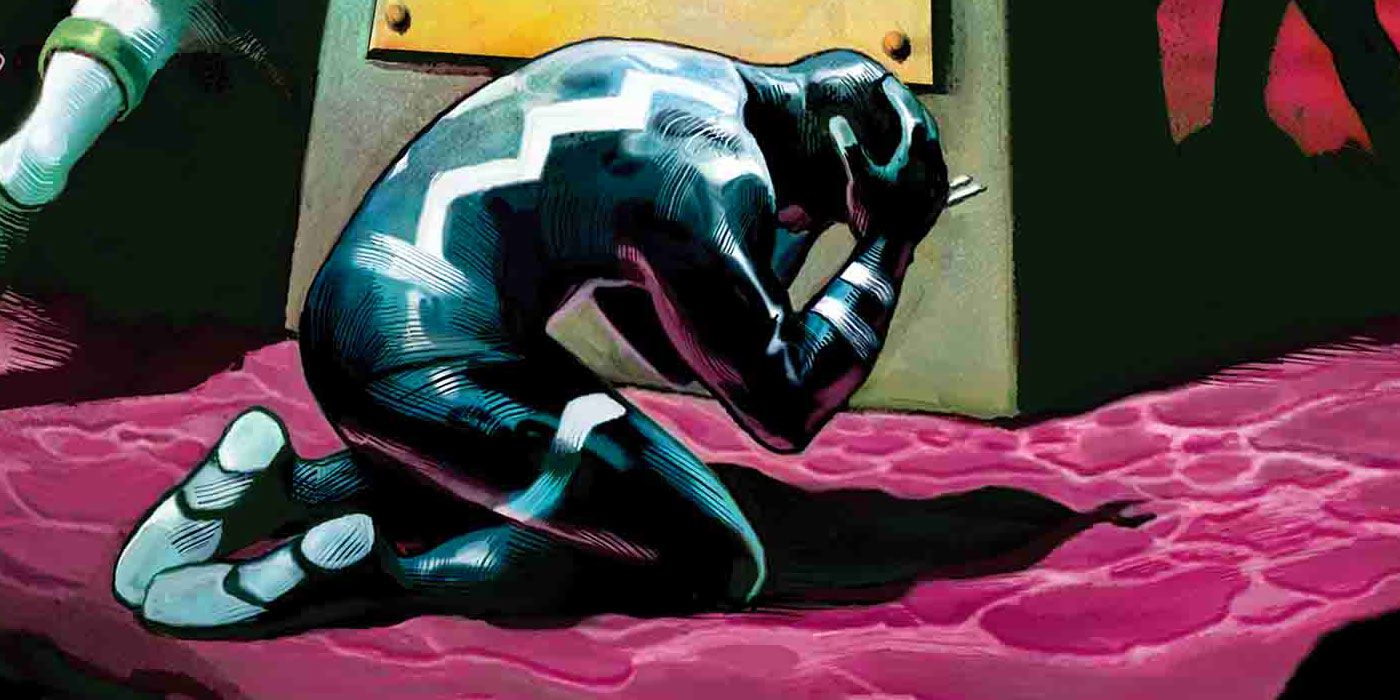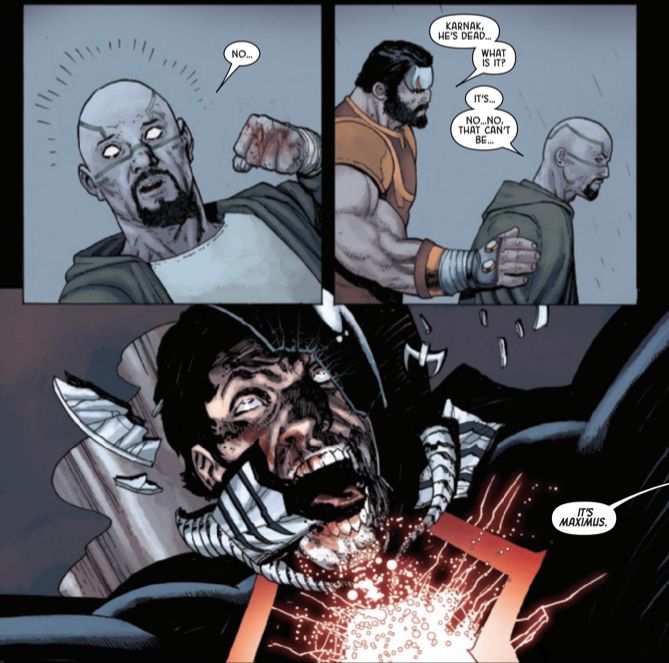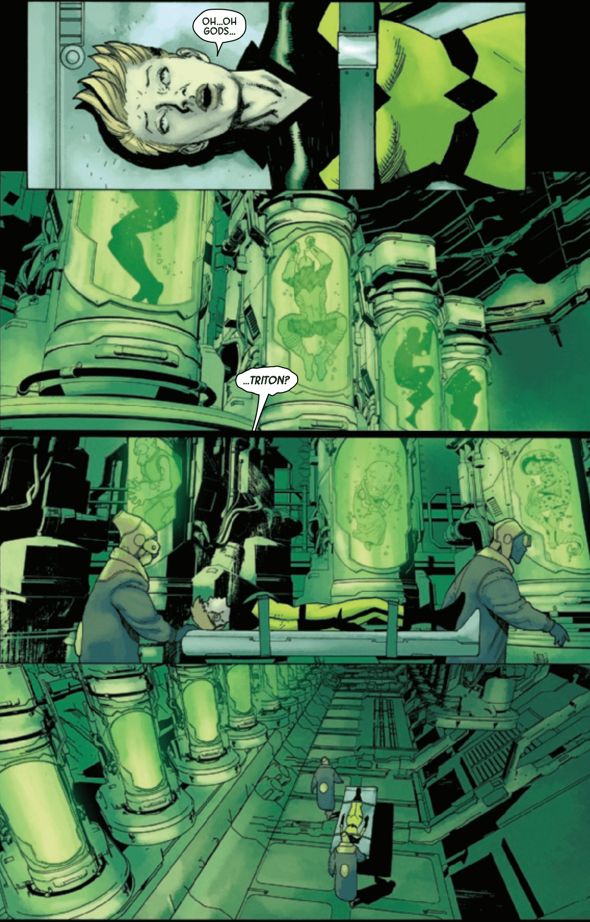WARNING: The following article contains spoilers for Death of the Inhumans #4 by Donny Cates, Ariel Olivetti, Jordie Bellaire and Clayton Cowles.
Death of the Inhumans has been viewed by fans largely as a way for Marvel to wipe the board of Stan Lee and Jack Kirby's assortment of cosmic weirdos. After the failed launch of the characters as a media property, which imploded thanks to the much maligned Inhumans television series, the first few issues' killing off most of the Inhumans that had been introduced or built up in the last couple of years over the comics gave even more credence to this theory. But as it turns out, the event is more about taking what they're meant to represent, leading to the darkest possible conclusion.
In Death of the Inhumans #4, the remains of the Royal Family go to Thor's old friend Beta Ray Bill for help. The hammer wielder is something of good friends with Lockjaw, and upon learning of the Inhuman canine's death, demands the Royal Family take him to Vox to mete out justice. Just as Vox is fighting Black Bolt, who began to escape his prison using his diminished vocal powers, Bill uses his hammer and cracks open Vox's mask. Dazed and confused, Vox uses his power on Crystal, seemingly vaporizing her just as he has to so many other Inhumans.
RELATED: Death of Inhumans #4 Reveals The Series’ Major Twist
But after Karnak starts to bash his face in, the truth is revealed: The Vox under the mask is none other than Maximus, thought to have been killed off in the closing pages of the series' first issue. Vox's voice wasn't replicating Black Bolt's power, it was replicating Lockjaw's. In other words, all of the Inhumans blasted by his voice were teleported to a Kree lab for the victims to be dissected and turned into future iterations of Vox.
The Inhumans have been a part of Marvel history for decades, but have never gained the popularity of similar characters, such as the X-Men. Whereas the mutants are an allegory for minorities and the underrepresented, the Inhumans fall on the opposite end of the spectrum; they're a metaphor for eugenics, the scientific practice aimed at improving the genetic quality of a human population. When pitting the intended notion of improving a society by doing away with the undesirable aspects against those meant to represent minorities with "undesirable aspects," it's easy to see who fans will side with.
RELATED: A Major Cosmic Hero Returns to Help the Inhumans
In a way, it's a dark irony that's befallen the Inhumans after the Royal Family was previously defined so long on an ugly science practice. That the Royal Family enslaved anyone without a useful power showed that they weren't exactly good guys, and though Marvel has leaned away from this in recent years, the eugenics angle isn't something that the brand has been able to shake. For one thing, they've never really challenged that notion, even when Black Bolt set off a bomb that created a variety of new Inhumans around the world and Medusa later abdicated the throne. They just sort of became a superhero team without going through the process of having to redeem themselves.
One more issue remains for Death of the Inhumans. With the knowledge that their people are being forced to become something they're not, this may finally be what puts the Royal Family and their kind on a genuine path to redemption and help them figure out how they fit into the larger Marvel Universe. It may be too little, too late, but wiping the slate clean is something that the brand has needed for years.



